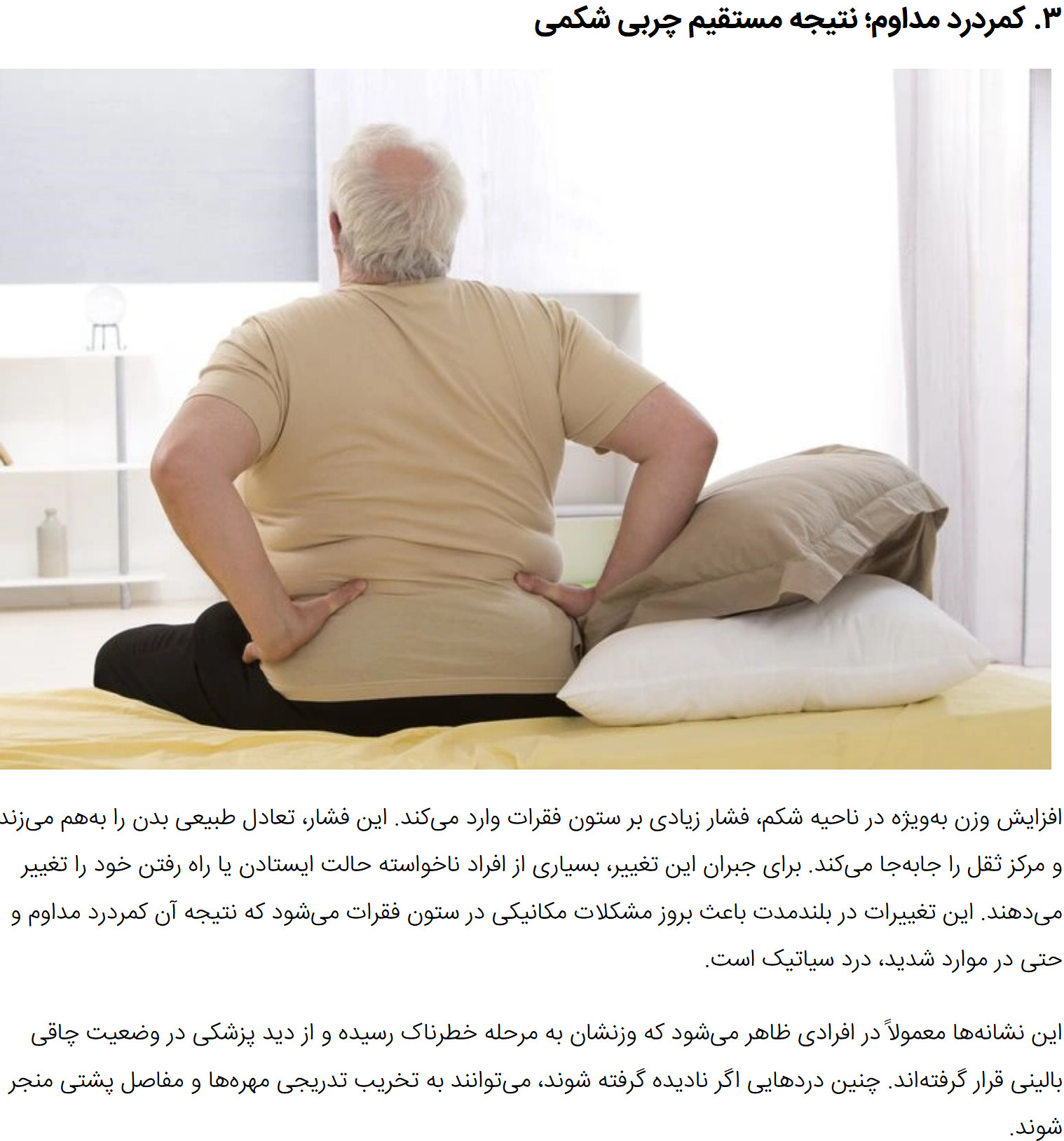Persistent Back Pain: A Direct Result of Belly Fat
Back pain is one of the most common and debilitating complaints among people with obesity, especially those carrying excess weight around the abdomen. When belly fat increases, it places significant stress on the lower back and spine, forcing the body to adjust in unnatural ways. This pressure shifts the center of gravity forward, disrupting the body’s natural alignment.
To compensate for this imbalance, many people unconsciously alter their posture or the way they walk. Over time, these adjustments strain the muscles, ligaments, and joints of the spine. As a result, mechanical problems develop, often leading to chronic back pain. In more severe cases, this can progress to conditions like sciatica, where nerve compression causes pain to radiate down the legs.
This type of back pain is not just a minor annoyance—it is a sign that weight gain has reached a level where it is affecting the musculoskeletal system. Individuals experiencing these symptoms are often in the clinical obesity range, where excess fat is beginning to have serious health consequences.
If persistent back pain is ignored, it may lead to the gradual degeneration of spinal discs and joints. This not only reduces mobility but can also severely impact quality of life. Early intervention is essential. Losing weight, strengthening core muscles, and seeking medical advice can relieve pressure on the spine and prevent further damage.
Recognizing persistent back pain as a consequence of obesity, particularly belly fat, is a crucial step toward regaining health and mobility. It’s not just about easing discomfort—it’s about protecting your spine, preventing long-term damage, and improving your overall well-being.

